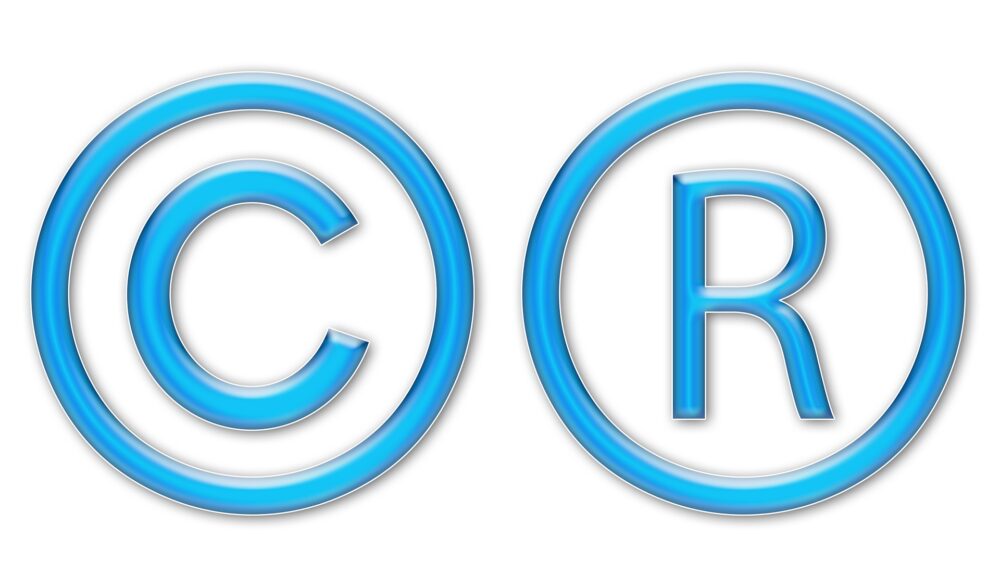Entrepreneurship isn’t easy, especially when your business is still at the startup level. Profit margins tend to be razor thin at best, workdays are far longer than a typical 9-5 and there’s still a lot of risk and uncertainty.
That said, it’s important to also remember intellectual property (IP) law throughout your business’s lifespan, especially as a fresh startup.
It can take years to really learn every last detail about IP law, though, so it’s best to just know the basics that are critical to keeping your intellectual property safe.

Here is a guide to IP law for startups and entrepreneurs to help you feel more prepared to protect your original ideas.
4 Areas of IP Law
To understand how IP law is able to cover so many different types of original ideas and creations, you should first know the four main areas it is broken into: trademarks, copyrights, patents and trade secrets.
Trademarks protect branding. This could be the name of your business, a logo, a unique slogan or really anything else that signifies your brand and helps consumers recognize you and your product when making their decision.
Copyrights protect the many forms of art that exist. Whether it be visual artwork, writing, music or any other expression, it can be protected through copyrights to make sure no one else can produce and distribute that original idea (or do so with derivative works).

Patents protect inventions and can grant the patent owner exclusive rights for up to 20 years! This is an expensive and grueling process, but it is well worth it when you are able to produce your original invention for years before competitors can take a piece of that market.
Trade Secrets protect information that is valuable and important to your business’s success. Anything that is being reasonably protected can qualify for this, even if it’s something that seems simple like a vendor list.
What to Do as the Entrepreneur
As the entrepreneur, you already have plenty of things to stay on top of when developing your startup, so it’s unlikely that you’ll want to further divide your time and master everything about IP law on top of it.
For this reason, the first thing you should do is start researching patent attorneys. Even if you don’t have an invention that would warrant a patent yet, these attorneys have dedicated years to understanding all the details of intellectual property (including trademarks, copyrights and trade secrets) and the law that protects it.
J.D. Houvener, a Los Angeles patent attorney, is one of many who offers free consultations to make sure entrepreneurs find their perfect fit:
“The good news is that there are actually a lot of patent attorneys out there ready to help you. The challenging part is finding the one that you confidently feel fits best with you and your business’s needs. This is why I recommend scheduling a number of free consultations so you can get a general idea of what’s out there and receive numerous professional opinions along the way.”
In addition to recruiting a patent attorney who can help with all of the complicated elements of IP law, entrepreneurs should also brush up on the basics themselves, something you’re doing right now!
Once you have a genuine grasp and undergo all of the necessary processes like learning how to file a patent and register your trademarks and copyrights, the only other thing you’ll need to do is keep an active watch for infringement. No one will hold guilty parties accountable if you don’t, so make sure you keep a firm grasp on your intellectual property and let competitors know you won’t be pushed over!
Why it Matters
Though you likely already know that the market is aggressively competitive, it’s genuinely very difficult to explain just how competitive it really is. There is global competition constantly battling to have the best product at the best price, and it’s an overwhelming experience for a startup.
The fact of the matter is this: no matter how much work you put into your product and how thin your margins are, it will be virtually impossible to compete with a massive business or corporation because their influence and resources will make it easy to slash your prices and steal your consumer base.
Getting a temporary monopoly through a patent or guarding your intellectual property with trademarks and copyrights will help to protect you as you really settle into the market and establish your brand. That takes time, experience and experimenting, and if anyone can adopt and steal your ideas without repercussion, you won’t have a chance.
In the end, this would be terrible for the market and consumer as well since entrepreneurs would have little to no incentive to create and invent. If your ideas will simply get snatched up before you can even open shop, why bother?
In Summary
Understanding IP law is incredibly important for any business, but it’s especially important for startups since they will need every advantage they can get when entering the fiercely aggressive marketplace.
By understanding trademarks, copyrights, patents and trade secrets and knowing what your role as the entrepreneur should be, you’re on your way to successfully protecting your intellectual property and feeling more secure against infringement.

Of course, always be sure to reach out to your local patent attorneys if you have any questions, even if it isn’t explicitly about filing a patent!






















